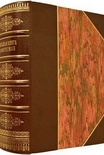Washington's Engineer by Norman Desmarais (best romantic novels in english TXT) 📗

- Author: Norman Desmarais
Book online «Washington's Engineer by Norman Desmarais (best romantic novels in english TXT) 📗». Author Norman Desmarais
I entreat His Excellency to ask the Congress for this Gentleman—he has on his part made applications which have hitherto proved fruitless. His name is Ville franche and he brought a particular recommendation from General R. How to the President of Congress.
Signed Chevr. du Portail16
Duportail did not await a response to this memorial, as he was aware of the responsibilities that would be required of the engineers in future combat. He created a school of engineering to start the next campaign off on good footing. Gouvion undertook the administration and could instruct the corps in a rigorous and homogeneous manner, faithful to the principles of conformity of action instructed at Mézières.
CORPS OF ENGINEERS
Washington, keenly aware of the need for an effective Corps of Engineers in the army, particularly liked Duportail’s plan to train officers as apprentice engineers, thus ensuring a steady supply of native-born engineers. He readily accepted Duportail’s plan and urged Congress to consider its importance, but that body was too busy with the many demands made upon it to give the matter immediate attention. In the meantime, Mr. Villefranche, in response to a demand made to Congress some time previously, received his appointment as major of engineers. But more officers were needed.
Congress approved the formation of three companies on May 27, 1778, but the army moved slowly, and Washington appointed officers only on August 2, 1779, after Duportail had personally interviewed the candidates. Washington transferred the carefully selected enlisted men from infantry regiments a year later.
Each company was authorized a captain, three lieutenants, four sergeants, four corporals, and sixty privates. Congress took the final step to regularize the “corps of engineers” on March 11, 1779. In response to Washington’s continuing pressure, it resolved “that the engineers in the service of the United States shall be formed into a corps, styled the ‘corps of engineers,’ and shall take rank and enjoy the same rights, honours, and privileges, with the other troops on continental establishment.”17 This legislation gave the engineers the status of a branch of the Continental Army, with the same pay and prerogatives as artillerymen to prevent any jealousy between the technical branches. As commandant of the Corps of Engineers, Duportail supervised the engineer officers and the companies of sappers and miners, functioned as a special adviser to the commander in chief, and assigned individual officers to specific posts before the start of each campaign.18
Reenactors, portraying the Department of Geographers, survey a redoubt. Photo courtesy of the author.
France began rigorously training a small corps of topographical engineers, the Ingénieurs Géographes (distinct from the Corps Royal du Génie), after the Seven Years’ War, setting a precedent for a separate topo-graphical section. These topographical engineers prepared a systematic map reference library for planning operations. Washington, a former surveyor, particularly understood the value of accurate maps. He asked for a topo-graphical staff on July 19, 1777, and Congress authorized him to appoint a “geographer and surveyor of the roads, to take sketches of the country, the seat of war,” as well as necessary subordinates six days later. Robert Erskine, a civil engineer and inventor, accepted the job but did not report to headquarters until June 1778. His maps were as accurate as those of the French and vastly superior to anything available to British commanders.
JEAN-BERNARD GAUTHIER DE MURNAN
Duportail discovered another young Frenchman who had come over independently as a volunteer and who possessed all the necessary qualifications for an officer of engineers. Duportail wrote a letter on February 23, 1778, strongly recommending him to the commander in chief:
M. de murnan, in whose favor I take the liberty of soliciting your kindness, has gone through the necessary studies for entering into the Corps of Engineers in France—he even obtained his license for examination, which is never granted until satisfactory papers are delivered at the War office setting forth that the person is of noble family. France does not receive into the Corps which is charged with the precious Trust of her fortified places and every thing that relates to the defense of her frontiers, any other subjects than those whose birth and education are pledges of their Sentiments and Conduct. This license is at the same time a proof of his studies, because it can only be had in consequence of certificates given by professors who are liable to be called upon—The reason why this gentleman was not admitted was because the arrangement of the Minister underwent a considerable change at that time—and that after having intended to make a considerable promotion in the Corps of Engineers, he confined himself to making a very small one.—This officer then entered into the King’s household Troops, but this Service not suiting his tastes which inclined him to engineering, he went to Russia which was then at war with the Turks. He there served in the capacity which he liked—he was Captain Engineer, but peace being made he returned to France where he was preparing to reenter the Service when called by some business to one of the Sea port Towns. The Enthusiasm which prevailed there in favor of this country took possession of him and he was persuaded to come here; a Vessel was ready, he embarked, contenting himself with barely writing to his friends to recommend him to Messrs. Franklin and Deane, as well as to the principal officers of his own Country here, among others, to the Mquis. de la Fayette, but none of these letters are arrived.
This officer may be very useful here, he possesses sufficient theoretical knowledge to make him an exceedingly good Engineer, and he acquired some practice in Russia. He





Comments (0)